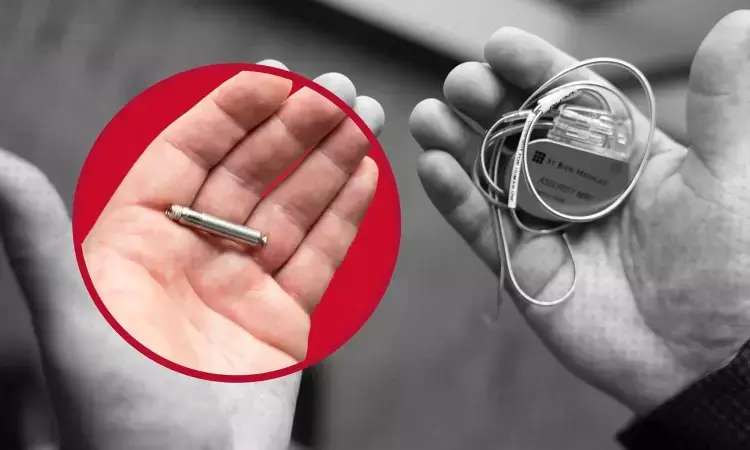- Home
- Medical news & Guidelines
- Anesthesiology
- Cardiology and CTVS
- Critical Care
- Dentistry
- Dermatology
- Diabetes and Endocrinology
- ENT
- Gastroenterology
- Medicine
- Nephrology
- Neurology
- Obstretics-Gynaecology
- Oncology
- Ophthalmology
- Orthopaedics
- Pediatrics-Neonatology
- Psychiatry
- Pulmonology
- Radiology
- Surgery
- Urology
- Laboratory Medicine
- Diet
- Nursing
- Paramedical
- Physiotherapy
- Health news
- Fact Check
- Bone Health Fact Check
- Brain Health Fact Check
- Cancer Related Fact Check
- Child Care Fact Check
- Dental and oral health fact check
- Diabetes and metabolic health fact check
- Diet and Nutrition Fact Check
- Eye and ENT Care Fact Check
- Fitness fact check
- Gut health fact check
- Heart health fact check
- Kidney health fact check
- Medical education fact check
- Men's health fact check
- Respiratory fact check
- Skin and hair care fact check
- Vaccine and Immunization fact check
- Women's health fact check
- AYUSH
- State News
- Andaman and Nicobar Islands
- Andhra Pradesh
- Arunachal Pradesh
- Assam
- Bihar
- Chandigarh
- Chattisgarh
- Dadra and Nagar Haveli
- Daman and Diu
- Delhi
- Goa
- Gujarat
- Haryana
- Himachal Pradesh
- Jammu & Kashmir
- Jharkhand
- Karnataka
- Kerala
- Ladakh
- Lakshadweep
- Madhya Pradesh
- Maharashtra
- Manipur
- Meghalaya
- Mizoram
- Nagaland
- Odisha
- Puducherry
- Punjab
- Rajasthan
- Sikkim
- Tamil Nadu
- Telangana
- Tripura
- Uttar Pradesh
- Uttrakhand
- West Bengal
- Medical Education
- Industry
World's first dual-chamber leadless pacemaker receives FDA approval for cardiac arrhythmia

USA: The US FDA (Food and Drug Administration) has approved the first chamber leadless pacing system, Aveir DR dual-chamber leadless pacemaker, for treating people with abnormal or slow heart rhythms.
"With more than 80% of people needing a pacemaker requiring pacing in two chambers of the heart (both the right atrium and right ventricle), the approval significantly increases access to leadless pacing for millions across the US," stated the company's press release.
Abbott's Aveir DR system comprises two small single-chamber pacemakers: the new Aveir AR pacemaker for the right atrium and the previously approved Aveir VR for the right ventricle.
Both leadless implants are paired for beat-to-beat, wireless communication via Abbott's proprietary "i2i technology" that relies on the power generated through a person's blood. Abbott states these high-frequency pulses use less battery than inductive, radiofrequency, or Bluetooth communication.
"Modern medicine has been filled with technological achievements that fundamentally changed how doctors approach patient care, and now we can officially add dual chamber leadless pacing to that list of achievements," said Vivek Y. Reddy, MD, director of cardiac arrhythmia services for the Mount Sinai Hospital and the Mount Sinai Health System, stated in the press release.
Dual-chamber pacing is indicated for patients with sick sinus syndrome; recurrent Adams-Stokes syndrome; chronic, symptomatic second- and third-degree AV block; and symptomatic bilateral bundle-branch block when tachyarrhythmia and other causes have been ruled out.
Both Aveir pacemakers are smaller than a AAA battery and are implanted percutaneously. The device is attached to the heart's interior surface via a helical screw-in mechanism to facilitate future device removal.
The device's approval was based on the Aveir DR i2i study that found that 0.2% of patients met the device's primary endpoint of adequate atrial capture threshold and sensing amplitude at three months. The implant success rate was 98.3%, and more than 97% of people had a successful atrioventricular synchrony at three months.
Device recipients showed 90.3% freedom from device- or procedure-related serious adverse events at 90 days. Complications included serious cardiac injury events, atrial fibrillation, and intraprocedural dislodgements of a leadless pacemaker.
"Leadless pacemakers have been limited to a single chamber device because seamless, wireless synchronization of two pacemakers has been an insurmountable engineering challenge - until now," said Randel Woodgrift, senior vice president of Abbott's cardiac rhythm management business. "Our team of dedicated scientists and engineers solved one of medtech's complex challenges in treating abnormal heart rhythms with the AVEIR pacemaker, a tiny device packed with powerful technology."
Dr Kamal Kant Kohli-MBBS, DTCD- a chest specialist with more than 30 years of practice and a flair for writing clinical articles, Dr Kamal Kant Kohli joined Medical Dialogues as a Chief Editor of Medical News. Besides writing articles, as an editor, he proofreads and verifies all the medical content published on Medical Dialogues including those coming from journals, studies,medical conferences,guidelines etc. Email: drkohli@medicaldialogues.in. Contact no. 011-43720751
Next Story


